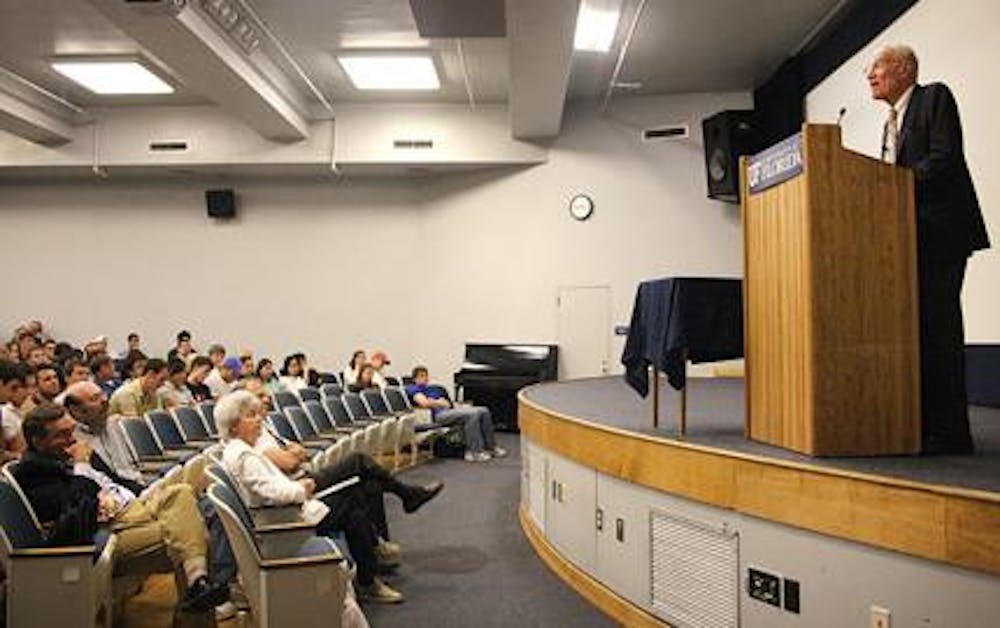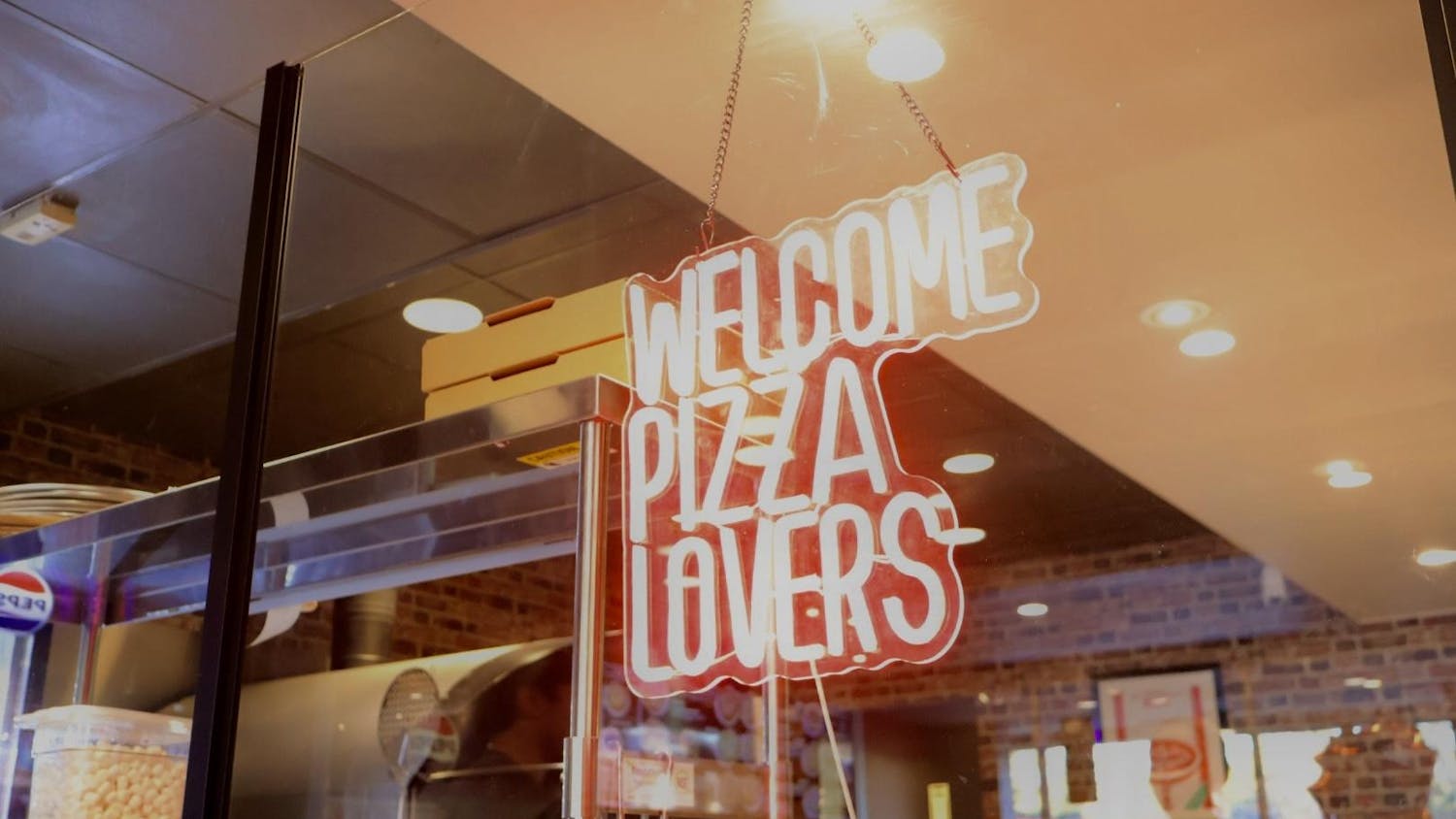Nobel Memorial Prize winner and MIT institute professor emeritus Robert Solow spoke on the Obama administration's response to the financial crisis to a crowd of about 200 students and faculty at the Reitz Union Auditorium on Monday.
Solow, 84, who labeled himself a lifelong Democrat, said Obama entered office faced with economic problems he did not create, including a deep recession, the collapse of the nation's financial system and a low level of consumer demand.
"I doubt that any president given this hand to play could have played it systematically better, and a lot of presidents would have played it worse," he said.
Solow, who won the Nobel Memorial Prize for his work on economic growth in 1987, said he favored the president's policy of reducing budget deficits over time rather than immediately.
Still, Solow did not hesitate to criticize the new president's economic policies.
"I think that the stimulus package was too small and too late," he said.
He said he supports giving more money and said Obama may have to offer a second dose of stimulus at the end of the year.
Solow also found fault in the composition of the bill, adding more jobs would have been created if the $3 billion allocated to the National Science Foundation had been used to subsidize state and local governments.
Solow noted the stimulus package was an improvement from past responses to American recessions, but spoke of mixed responses by U.S. citizens to the economic downturn.
American household incomes declined from mid-2007 to the end of 2008, Solow said.
Despite the American economy remaining just as capable of producing goods and services, many American families perceived themselves as poor, he said.
At the end of his hour-long speech, Solow stepped off the stage, only to be swarmed by admiring students asking about career advice, autographs and economic affairs.
Maria Barlett, a UF graduate student in international development and policy administration, complimented Solow on his easy-to-understand economic terms. Before the speech, she said, she lacked enough knowledge to formulate in-depth questions about the U.S. financial situation.
Before closing his speech, Solow alluded to the problems faced by companies once considered too big to fail, such as General Motors and large banks.
"I would like President Obama to consider that too big to fail is too big to exist," Solow said.
If a company damages the economy, it should be broken up, he said, adding the government should function as a regulating force.
In a question-and-answer session, one audience member asked Solow about how long the economy would take to recover from the crisis.
Solow said the recession could hit bottom in the next 12 months, but the time of an eventual recovery is unknowable to any degree.
It will take longer than a year for the economy to get back to anything Americans would describe as normal, he said.






